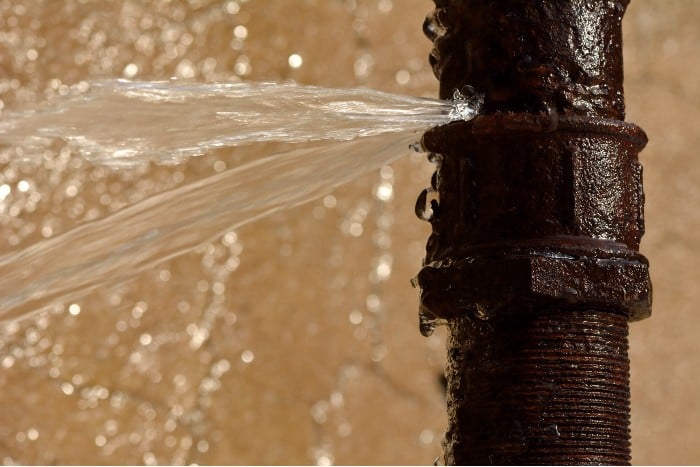Your Residential Common Common Leak Factors: Analysis
Your Residential Common Common Leak Factors: Analysis
Blog Article
They are making several good pointers about How to detect water leaks in your home in general in the article in the next paragraphs.

Leakages not only cause waste of water however can additionally cause unneeded damage to your house and also promote undesirable organic development. Water leakages could go undetected since most of the pipework in our house is hidden. By comprehending as well as looking for everyday circumstances that create leakages, you can secure your house from future leaks as well as unnecessary damage. Today, we will check out six leak causes that may be triggering your pipelines to drip.
Trespassing origins
Many water leaks start outside the house rather than inside it. You might see wet spots or sinkholes in your backyard, as well as that might mean that tree roots are getting into water lines triggering water to seep out.
Rusty water supply
As time goes by, your plumbing system ages and also rust such as rust may start gnawing the pipes. This might be the cause of staining or warping on your water pipes. This asks for an evaluation with your plumber right away. If our plumbing system is old, think about replacing the pipes since they go to a higher danger of corrosion than the newer designs.
Defective Pipe Joints
Pipeline joints can weaken over time, resulting in water leaks. If you have noisy pipes that make ticking or banging sounds, especially when the warm water is turned on, your pipeline joints are probably under a whole lot of pressure.
Instantaneous temperature level modifications.
Extreme temperature level changes in our pipes can cause them to broaden and also contract unexpectedly. This development and contraction might cause cracks in the pipelines, specifically if the temperature are below freezing.
Poor Water Connectors
At times, a leakage can be caused by loose hose pipes as well as pipes that provide your devices. In case of a water connections leak, you may notice water running directly from the supply line or puddles around your appliances.
Blocked Drains
Blocked drains could be irritating as well as inconveniencing, but they can often wind up triggering an overflow causing rupture pipelines. Maintain removing any kind of products that might drop your drains that could obstruct them to prevent such troubles.
All the above are sources of leaks however not all water leaks result from plumbing leakages; some leakages could come from roofing leaks. All leakages must be fixed promptly to prevent water damages.
Leaks not just trigger waste of water but can additionally create unneeded damages to your home and also promote undesirable organic growth. By looking as well as recognizing for daily scenarios that trigger leakages, you can safeguard your residence from future leaks and unneeded damages. Today, we will look at six leakage triggers that might be causing your pipelines to leak.
At times, a leak can be created by loose hose pipes as well as pipes that provide your home appliances. In situation of a water links leakage, you might notice water running directly from the supply line or pools around your devices.
How To Check For Water Leak In Your Home
How To Check for Leaks
The average household's leaks can account for nearly 10,000 gallons of water wasted every year and ten percent of homes have leaks that waste 90 gallons or more per day. Common types of leaks found in the home are worn toilet flappers, dripping faucets, and other leaking valves. These types of leaks are often easy to fix, requiring only a few tools and hardware that can pay for themselves in water savings. Fixing easily corrected household water leaks can save homeowners about 10 percent on their water bills.
To check for leaks in your home, you first need to determine whether you're wasting water and then identify the source of the leak. Here are some tips for finding leaks:
Take a look at your water usage during a colder month, such as January or February. If a family of four exceeds 12,000 gallons per month, there are serious leaks.
Check your water meter before and after a two-hour period when no water is being used. If the meter changes at all, you probably have a leak.
Identify toilet leaks by placing a drop of food coloring in the toilet tank. If any color shows up in the bowl after 10 minutes, you have a leak. (Be sure to flush immediately after the experiment to avoid staining the tank.)
Examine faucet gaskets and pipe fittings for any water on the outside of the pipe to check for surface leaks.
Undetected water leaks can happen without the home or business owner even realizing. If you suspect a water leak, but not able to find the source. It is time to contact a professional water leak detection service, The Leak Doctor.
How To Find a Water Leak In Your Home
https://www.leakdoctor.com/blog/How-To-Check-For-Water-Leak-In-Your-Home_AE197.html

I discovered that content on Most Common Causes of Leaky Pipes while doing a lookup on the search engines. Enjoyed reading our article? Please share it. Help another person check it out. We enjoy reading our article about Most Common Causes of Leaky Pipes.
Drain issues? Reach out! Report this page